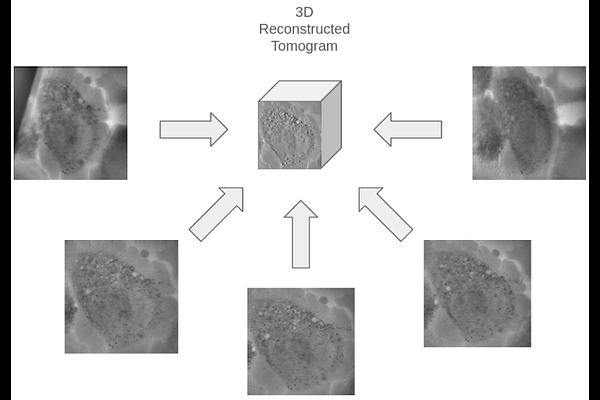Robust Deep Denoising of Soft X-Ray Tomography Data for Biological Research: Targeting Tilt Series Versus Reconstructed Tomograms

Robust Deep Denoising of Soft X-Ray Tomography Data for Biological Research: Targeting Tilt Series Versus Reconstructed Tomograms
Chueh, S.; Simpson, J. C.; Kapishnikov, S.
AbstractSoft X-ray microscopy (SXM) is a powerful tool for nanoscale 3D imaging of hydrated, intact cells. However, its application is limited by pixel-wise-correlated noise inherent in the imaging process. While the deep-learning-based framework Noise2Inverse has been proposed for tomography denoising, the lack of robust validation for newly revealed features raises concerns regarding their practical biological utility. We argue that denoising the raw tilt series, instead of on the reconstructed tomogram, offers a significant advantage by leveraging the tomographic reconstruction process to mitigate local prediction errors through averaging. Consequently, features present in the tomogram reconstructed from a denoised tilt series exhibit higher credibility, as falsely predicted details on certain tilt series slices are likely to be averaged out. Nevertheless, denoising the tilt series remains challenging due to the spatially correlated noise that occurs in bioimaging. Existing self-supervised methods relying on a single noisy image struggle with such noise, while the Noise2Noise framework necessitates paired noisy datasets for training. This study addresses these challenges by investigating practical imaging workflows in SXM and related bioimaging modalities to identify existing imaging resources as training data for tilt series denoising. We compare the denoising performance when applied to tilt series versus reconstructed tomograms and evaluate the efficacy of chosen methods on real biological specimens to assess their applicability within practical SXM research. Our findings establish a robust and efficient denoising strategy for SXM by directly addressing the complexities of noise in the raw tilt series.